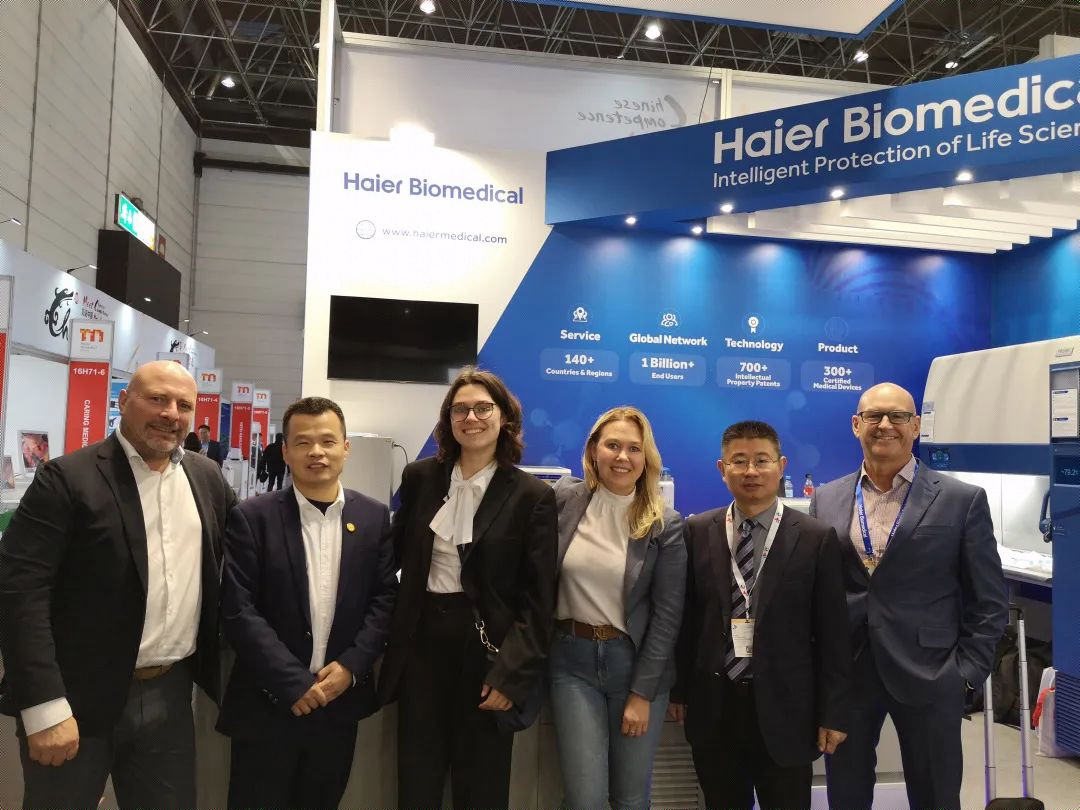
Preserving samples at ultra-low temperatures is paramount in scientific inquiry to maintain their integrity and ensure the accuracy of research outcomes. Traditionally, liquid nitrogen (LN2) storage vessels have been the cornerstone of long-term cryogenic sample storage. However, -150°C mechanical cryofreezers can be a compelling alternative, offering many advantages that challenge the conventional wisdom surrounding cryogenic storage solutions. Let's delve into the myriad benefits of -150°C mechanical cryofreezers and why they warrant serious consideration in your laboratory setting.

Enhanced Safety and Convenience
Liquid nitrogen, while effective for maintaining low temperatures, poses inherent safety risks, including frostbite and asphyxiation. Handling and storing LN2 requires stringent safety protocols and specialised training to mitigate potential hazards. In contrast, -150°C mechanical cryofreezers eliminate the need to handle hazardous materials, providing a safer and more convenient option for sample storage. Researchers can focus on their work with peace of mind, knowing that their samples are securely preserved without the associated safety concerns of LN2 handling.

Precise Temperature Control
Maintaining a consistent temperature is crucial for safeguarding the integrity of sensitive samples. LN2 storage vessels may experience temperature fluctuations during refills or due to ambient conditions, potentially compromising the quality of stored samples. In contrast, a -150℃ mechanical cryofreezer, such as the DW-150W209 from Haier Biomedical, offers precise temperature control and uniformity of ±5°C, ensuring that samples remain stable and unaffected by external factors. With advanced temperature monitoring and regulation systems, cryofreezers give researchers the confidence that their samples are maintained at optimal conditions, leading to more reliable research outcomes.

Comparable Upfront Costs
The initial investment in mechanical cryofreezers is likely comparable to an LN2 storage freezer of similar sample capacity. The cost differentials become narrower when factoring in the ongoing expenses associated with LN2 storage, such as the purchase and replenishment of liquid nitrogen and maintenance costs for LN2 storage vessels. In many cases, -150°C mechanical cryofreezers offer a cost-efficient solution that aligns with long-term budget considerations, making them a financially viable alternative to traditional LN2 storage.

Time-Efficiency and Reduced Human Resource Demands
Operating and maintaining LN2 storage facilities can be labour-intensive and time-consuming, requiring regular monitoring, refilling, and safety checks. This demands valuable time and attention from laboratory personnel, diverting resources from core research activities. In contrast, -150 mechanical cryofreezers offer a significant advantage in terms of time efficiency. With automated temperature control systems and remote monitoring capabilities, cryofreezers streamline sample storage processes, reducing the burden on laboratory staff and enhancing overall productivity.

Space Efficiency and Environmental Adaptability
LN2 storage vessels often require dedicated rooms or facilities equipped with specialised infrastructure to handle the storage and release of liquid nitrogen safely. Finding suitable space for LN2 storage facilities can be challenging, especially in older buildings or laboratories with limited floor space or specific environmental constraints. A mechanical cryofreezer offers greater flexibility and can work when LN2 is not an option. The relatively compact design and compatibility with various laboratory environments make them an attractive alternative to traditional LN2 storage vessels, simplifying the logistics of sample preservation and enhancing overall operational efficiency.
In conclusion, -150°C mechanical cryofreezers represent a paradigm shift in cryogenic sample storage, offering a comprehensive alternative to conventional LN2 storage vessels. With enhanced safety, precise temperature control, cost-efficiency, time-saving benefits, and space adaptability, cryofreezers address the diverse needs of modern research laboratories while paving the way for more efficient and sustainable scientific practices. As you embark on your scientific journey, consider the advantages of -150°C mechanical cryofreezers and their potential to revolutionise your laboratory's cryogenic storage capabilities.














.png)




























